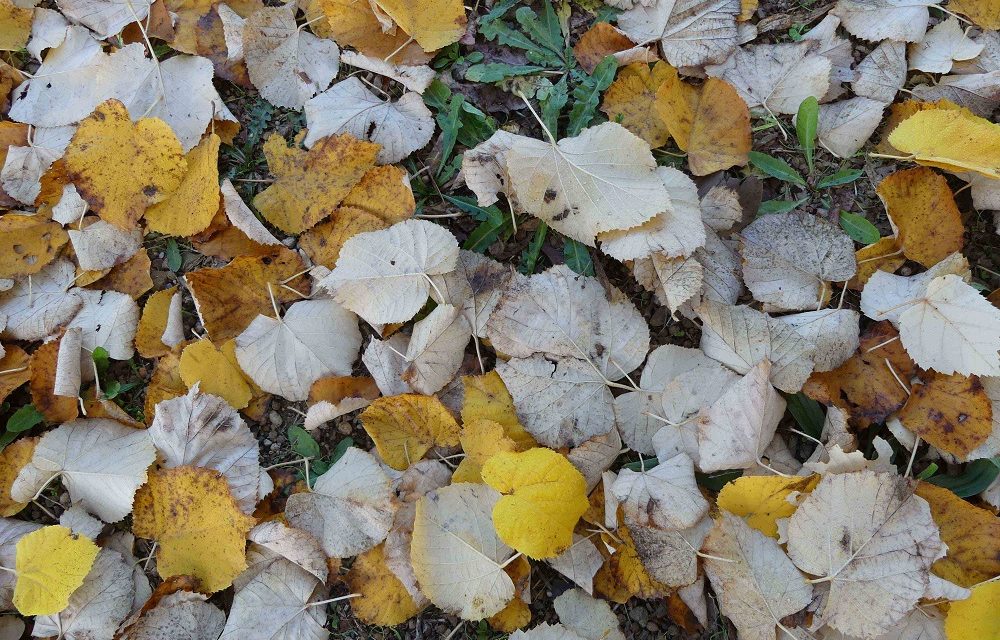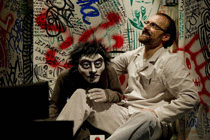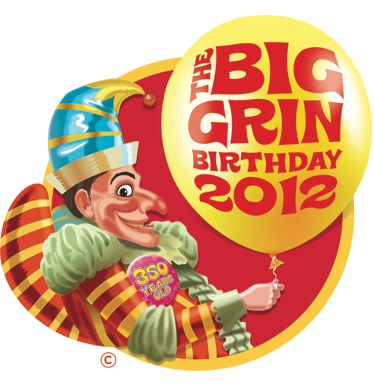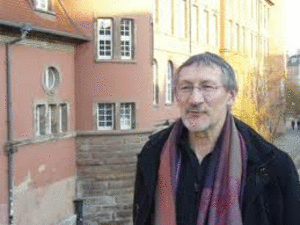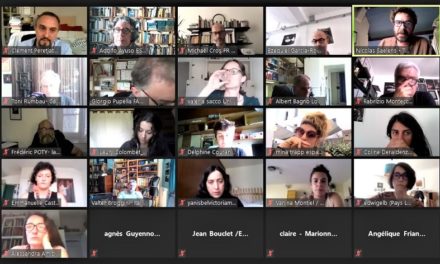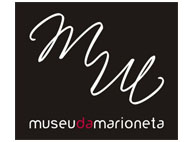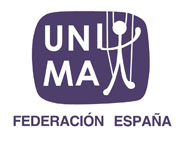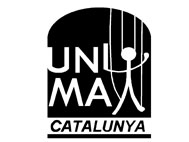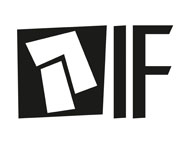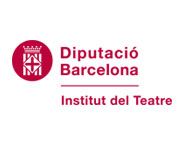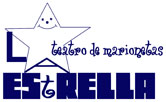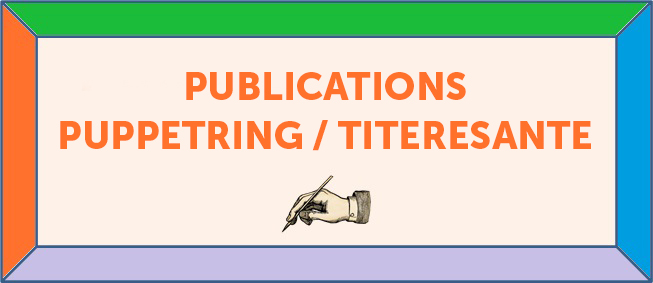Corpus by Xavier Bobés was premiered at L’Auditori de Barcelona earlier this year, with performances from 20 to 23 February, followed by five days at the Teatros de Canal in Madrid from 1 to 5 July, 2020. As the audience programme says, Corpus is an encounter ‘between a sculpture, a manipulator of objects and a musician.’ Performed by Xavier Bobés and the cellist Frances Bartlett, who also composed the music, others involved are the sculptor Gerard Mas, Pep Aymerich, who constructed the set, and CUBE in the lighting design. Corpus is a co-production of l’Auditori de Barcelona and the Teatros del Canal de Madrid.
If we were asked to situate this new project by Bobés in relation to his work overall, I believe we should speak of a point of inflection in which themes from his early shows –with a focus on intimate personal matters and an individual’s struggle to discover his personal vein of artistic expression– are picked up afresh, but in order to turn the page on them; as if he wished to close one cycle and open new ones from a more distant standpoint of self-aware observation of himself. On the other hand, he has also abandoned, at least for the moment, the subject matter of memory and an emotional backward gaze that featured in his last productions, given that if Corpus has a declared aim, in my opinion, it is the creation of a ritual that is objectively austere and rigorous, in which for the first time Bobés successfully places Time –that principal theme of his– at the centre of a piece, considering it from a distance, as an observer who views it from inside and out.
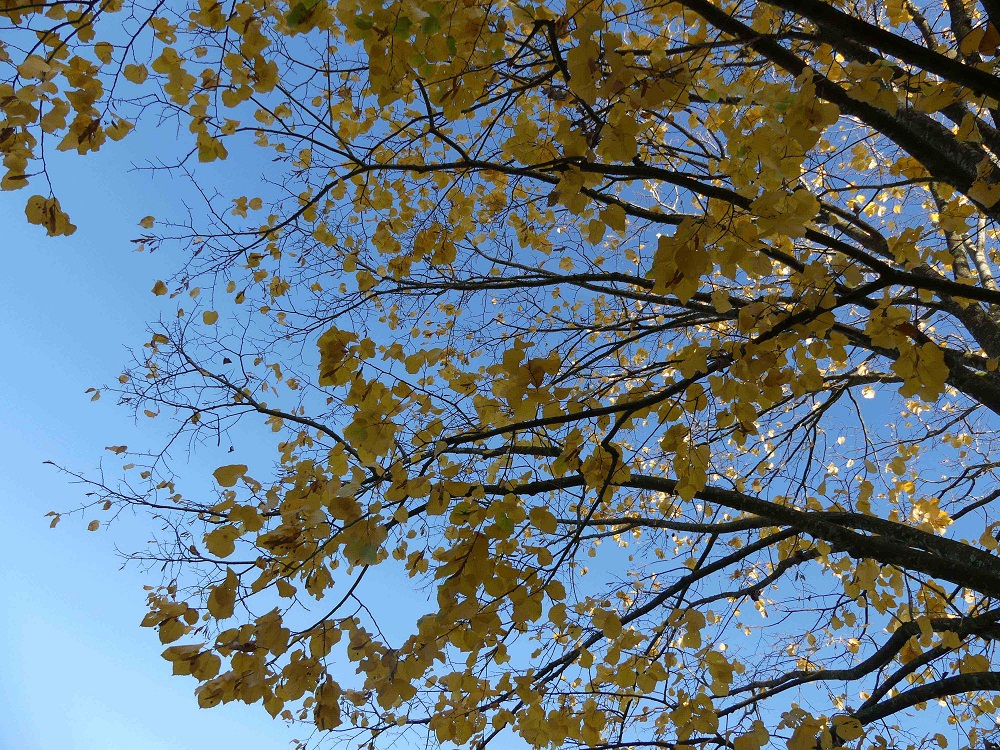
A vision, therefore, that is neither emotional, impassioned, nor moralistic –except during a moment involving coins, where the condemnation of a reality was unavoidable– but which, rather, aims for the complete objectivity of a ritual whose smallest detail is bound to a tenth of a second, in an attitude of observation partway between meditation, synthesis and the attention of an entomologist.
And, nevertheless, what is explained in this long ritual sequence that is Corpus, is the story of an entire life, not in the biographical sense, but in the experience of perception, seen through a dialogue with alien realities, such as the canonical human figure of a naked body, made by Gerard Mas, and the musical texture of a cello performed live by Frances Bartlett. Through music and the spoken word, it is she who is responsible for contributing the glow of feeling to the work’s pictorial flow. That is to say, through the mirror of music, the emotions contained in the sculpture and certain essential objects.
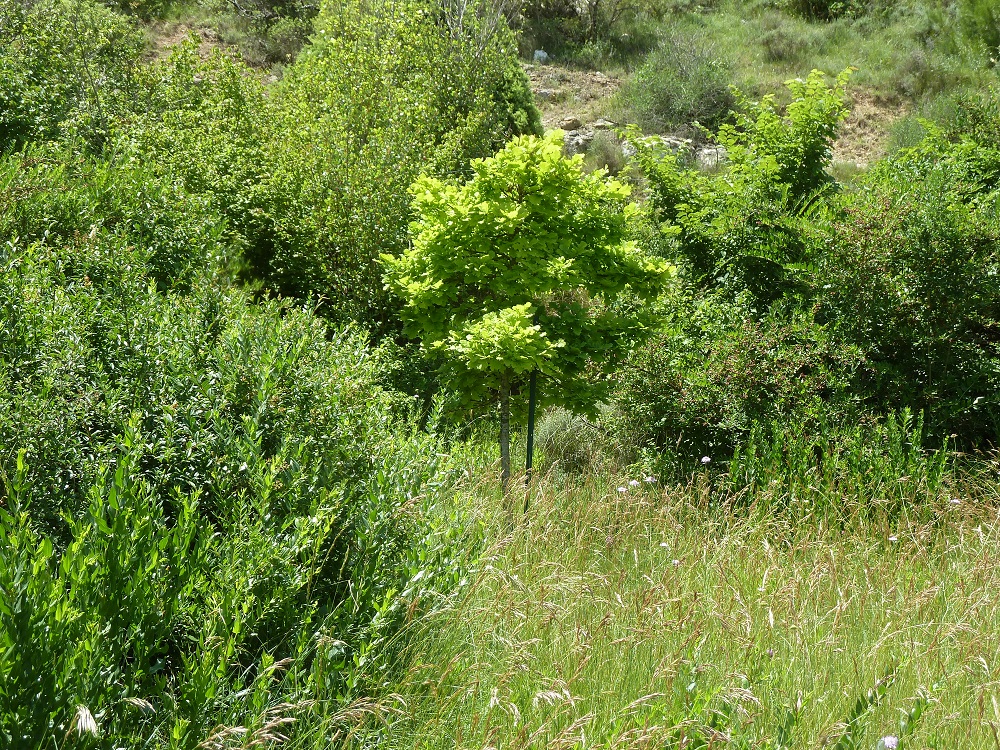
And I have used the term pictorial flow, because the other masterful component of Corpus is the perception of how the extended sequence of the ritual’s naked time creates the space for life through a landscape, which the officiating and observant Bobés gradally composes over the course of the work. Time and space thus hold a dialogue, in parallel with the dialogue between the sculpture and the music that structure the overall piece. The signs used, of extreme simplicity, permit the various elements to interact: set, gesture and movement, sculpture, objects and music, creating a complex texture of intersection, which is a synthesis of that Time, into the observation of which Bobés desires to draw us. How to see what is invisible, except by means of the tapestry that time itself weaves out of our lives and our very being?
A fundamental point of the work, I believe, is the subtle but decisive significance he gives to the point that constitutes the centre of the circle of life; a point that for the mathematician is, as we know, a zero without dimensions, that is to say, nothingness, upon which Bobés places identity.This is the implicit answer to the question that always hovers over an investigation of this kind: Where is one’s identity, and on what is it based? The reply seems clear: on the nothingness of the point without dimensions that constitutes the centre of the circle of life. A zero, an emptiness, is what supports the mask of the adult self, so that it is impossible for human beings to mature, satisfied in ourselves, finding ourselves comfortable and self-satisfied. Perhaps that is why we fill this empty identity with something that gives it weight and value, to be able to measure and weigh it up, so that identity becomes confused with the weight of the fortune that we gather throughout our lives, generally calculated by the size of our current account.
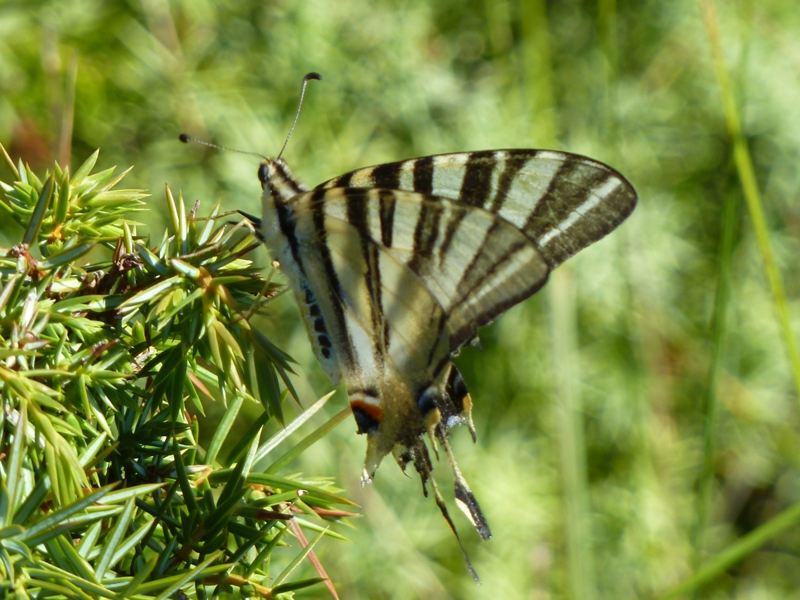
The gaze of the entomologist, however, shows us that, in the long run, emptiness ends up imposing itself when the piggy bank cracks. That is how the mask of old age, which is that of death, emerges as a substitute for maturity broken by emptiness. But pay attention, the entomologist here has made a pact with Time, which, in exchange for respectful submission to the ritual, reveals its secret: the centre, which is a zero, is also the naked number 1 that is born to impose its universe.
Thus ends this work by Bobés, with the triumph of 1 recently born, offspring of this pact with Time, which offers its circularity in order to meet always the origin, the unquenchable source of life, creative energy that is capable of inaugurating different worlds, free from the burden of old baggage, at the zero point of departure that is activated from absolute freedom.
We could sum up the show Corpus in the following way: a work about Time, geometric in style, in a ritual sequence from a standpoint of self-observation, entomological and meditative, told through the reflecting surfaces of music, art and matter, a show which is committed to the values of creativity in life when this is undertaken from an identity grounded in point zero that acts like a black hole ready, at any moment, to explode in creative freedom.
Chapeau!

